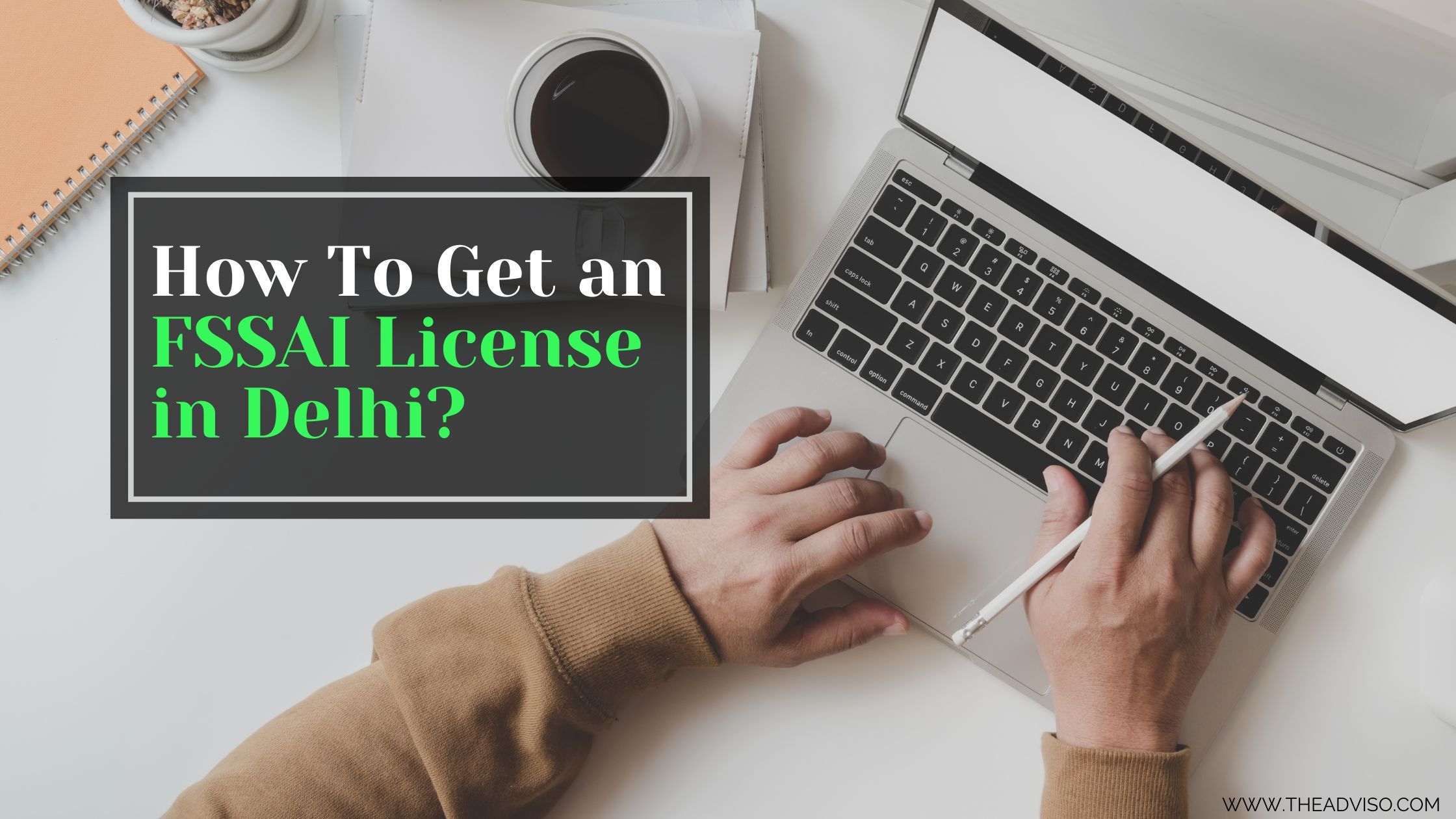FSSAI License in Delhi
India accommodates a sizeable food industry spanning diverse businesses including restaurants, eating houses, production units, food packagers, marketers, etc. Regulating this sector is daunting and requires a proactive approach so that end-users health doesn’t get compromised. FSSAI takes care of this concern by governing almost all forms of food businesses nationwide regardless of scalability or revenue. This apex regulator falls under the FSS Act 2006 and grants licenses to eligible food establishments upon inspection. This article explores how to get an FSSAI license in Delhi and the legalities around it.
Significance and Types of FSSAI License
From roadside dhabas to full-fledged production units, FSSAI registration is mandatory for diverse food establishments. According to the FSS Act 2006, all food businesses must obtain FSSAI certification to legitimise their operation. The registered FBOs i.e. Food Business Operators must comply with the FSSAI’s guidelines for the production, quality, storage, packaging, and transportation of edible items. This helps curb the production of sub-standard and unhygienic food items.
FSSAI offers three different certifications based on the business turnover, production threshold, and operational footprint. These include FSSAI basic registration, State license and Central License. Let’s explore these licenses individually to know more about them.
FSSAI Basic Registration:
As the name suggests, this approval spans the small businesses including petty food vendors, roadside dhabas, tea stalls, etc having yearly turnover less than Rs 12 lacs. The applicant must use Form A to apply for this registration.
FSSAI State license:
The state FSSAI license is mandatory for food establishments generating annual revenue ranging from Rs 12 lacs to Rs 20 crores. Form B is the standardized application form for this registration.
FSSAI Central license:
The Central FSSAI license applies to larger establishments earning yearly revenue of more than Rs 2 crores.
How to Get an FSSAI License in Delhi: A Step-by-Step Guide
The steps below will help you apply for the FSSAI license in Delhi online.
- Head to the food authority portal called FoSCoS.
- Click on the Apply License/Registration option located on the homepage.
- Tap on the dropdown list to select your state, which is Delhi in this case.
- Select the business type to confirm whether your entity is a production unit, eating house, packing facility, transporter, or commercial establishment.
- Next, enter your current production threshold in required metric units and then click on Proceed.
- Once the following window appears, select the license/registration type that applies to your business.
- Fill out the e-form with accurate details, upload the supporting documents (as mentioned in the above section), and submit the applicable fee.
- Click Submit to end the process of online application submission.
Upon receiving the form and documents, FSSAI initiates the inspection process to identify potential non-compliance. The officials from this authority may visit the facility to make a compliance check in the purview of the FSS Act 2006. If the vetting process pans out well, the FSSAI shall grant the certification.
Essential Documents for FSSAI License
Before applying for an FSSAI license, ensure you have the necessary documents ready. The list is categorized based on the type of license you need:
FSSAI Registration
- Proof of identity (e.g., Aadhaar card, Voter ID).
- Proof of the food business address (e.g., utility bill, rental agreement).
- Certificate of food business constitution (e.g., partnership deed, incorporation certificate).
- Proof of possession of business premises (e.g., lease deed, property tax receipt).
- Detailed description of the business’s nature.
- List of food items or products manufactured or processed.
FSSAI State/Central License
- Completed and signed Form-B.
- Proof of the food business address (e.g., utility bill, rental agreement).
- Layout plan of the food processing unit.
- Certificate of food business constitution (e.g., partnership deed, incorporation certificate).
- Proof of possession of business premises (e.g., lease deed, property tax receipt).
- List of food items proposed to be manufactured or processed.
- Analysis report of water used in food products from a recognized public health laboratory.
- Food safety management system plan or certificate.
- NOC (No Objection Certificate) from the manufacturer.
- Authority letter nominating a responsible person with name and address details.
- Details and contact information of members, partners, directors, or executives.
- Name, number, horsepower, and capacity of equipment and machinery installed.
- ID and address proof of partners, proprietors, directors, or authorized signatories.
Understanding the fee structure around FSSAI license in Delhi
| Business Type | Production Capacity | Fees (Rs.) |
| Manufacturer | 1MT-2MT per day or 10,001 to 50,000 litres of milk per day | 5000 |
| Manufacturer | 101 KG or litres to 1MT per day or 501 to 10,000 L of milk per day | 3000 |
| Hotels | Three and four-star hotels | 5000 |
| Hotels | One, two and three-star hotels or hotels without a star rating by the Ministry of Tourism (HRACC) | 2000 |
| Food Service Providers (canteens, clubs, banquet halls with catering, caterers, restaurants, food vendors, etc.) | N/A | 2000 |
| Wholesalers, Retailers, and Distributors | N/A | 2000 |
Underscoring Notable Compliances under the FSSAI license in Delhi
| Compliance Requirement | Description |
| Annual Return Filing | File an annual return in Form D1 by May 31st each year. |
| Semi-annual Return Filing (for dairy products) | File a semi-annual return in Form D2 by May 31st and November 30th each year. |
| Record Keeping | Keep detailed records of production, raw materials, sales, and food testing. |
| Food Safety Management System (FSMS) | Establish and maintain an FSMS plan or certification. |
| Hygiene and Sanitation | Maintain hygiene and sanitation standards as per Schedule 4 of the FSS (Licensing and Registration of Food Businesses) Regulations, 2011. |
| Food Product Testing | Regularly test food products to ensure they meet standards, and keep records of these tests. |
| Training for Food Handlers | Train all food handlers in proper food safety and hygiene practices. |
| Display of FSSAI License | Prominently display the FSSAI license number at the business premises. |
| License Renewal | Renew the FSSAI license before its expiration date to continue operations legally. |
| Incident Reporting | Immediately report any food contamination or safety issues to the FSSAI. |
| Product Recall Plan | Develop a product recall plan and notify FSSAI of any recall actions taken. |
| Labeling and Packaging Compliance | Ensure that all food products are labeled and packaged according to FSSAI regulations. |
| Inspections and Audits | Permit FSSAI officials to conduct inspections and audits as necessary. |
| Adherence to New Regulations | Stay informed and comply with any new FSSAI regulations or amendments to existing rules. |
Penalties for offences under the FSSAI license
| Offense | Penalty |
| Sub-standard food | Fine up to Rs. 5 lakhs |
| Misbranded food | Fine up to Rs. 3 lakhs |
| Misleading advertisement | Fine up to Rs. 10 lakhs |
| Food containing extraneous matter | Fine up to Rs. 1 lakh |
| Failure to comply with FSSAI directives | Fine up to Rs. 2 lakhs |
| Unhygienic processing/manufacturing | Fine up to Rs. 1 lakh |
| Possession of adulterants | Penalties vary depending on the type of adulterant: |
| – Non-harmful adulterant: Fine up to Rs. 2 lakhs | |
| – Harmful adulterant: Fine up to Rs. 10 lakhs and/or imprisonment up to 6 months | |
| Sale of unsafe food | Penalties vary depending on the impact on health: |
| – No injury: Imprisonment up to 6 months and fine up to Rs. 1 lakh | |
| – Minor injury: Imprisonment up to 1 year and fine up to Rs. 3 lakhs | |
| – Serious injury: Imprisonment up to 6 years and fine up to Rs. 5 lakhs | |
| – Death: Imprisonment not less than 7 years, extendable to life imprisonment, and fine not less than Rs. 10 lakhs | |
| Manufacturing/sale without a license | Imprisonment up to 6 months and fine up to Rs. 5 lakhs |
| Obstructing or impersonating an FSSAI officer | Imprisonment up to 3 months and fine up to Rs. 1 lakh |
| Repeated offenses | Penalties and punishments may be doubled for repeat violations, and the offender’s license may be suspended or cancelled. |
Conclusion
Getting an FSSAI license in Delhi involves complying with a myriad of compliances. FSSAI leverages strict guidelines for legitimizing food establishments. These guidelines involve performing on-site inspection, food testing, adulteration checks, packaging vetting, etc. So it is a better idea to become as compliant as possible before applying for this approval.
If dealing with compliance makes you uncomfortable, let Adviso’s seasoned professionals help you out. We are India’s leading compliance partner backed by a team accommodating experienced professionals. We make businesses compliance-ready without drawing their attention toward legalities. You can focus on things that matter and let our experts do the heavy lifting.
Read Our Article: How To Apply For FSSAI Central License?




